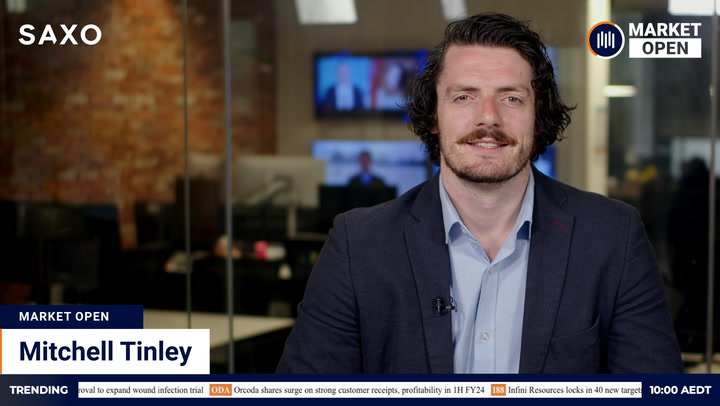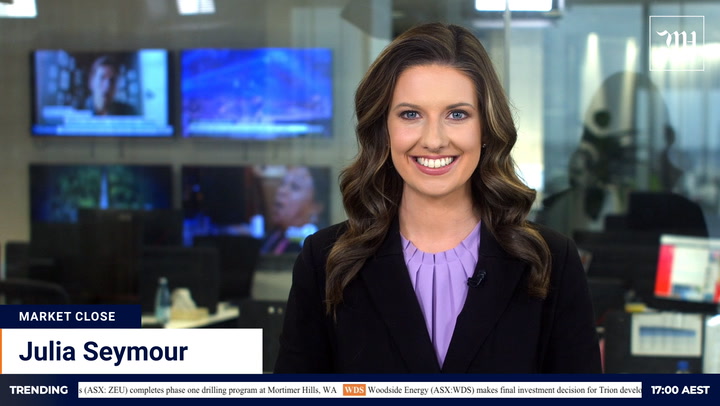Stocks were pointing firmly lower after signs of a resurgence of COVID-19 weighed on Wall Street.
ASX SPI200 index futures slumped 78 points or 1.3 per cent, signalling a soft start to the trading week as investors grapple with the spectre of a second wave of coronavirus infections. Victoria yesterday extended its state of emergency for four weeks after recording its fifth straight day of new cases in the double digits.
US stocks closed broadly lower on Friday after Apple announced it was reclosing stores in several US states where infections were still rising. The S&P 500 fell 18 points or 0.56 per cent during a choppy “quadruple witching” session as various futures and options contracts expired and S&P Dow Jones Indices rebalanced indices. The Dow shed 209 points or 0.8 per cent. The Nasdaq eked out a gain of three points or 0.03 per cent.
Fears of a second economic shutdown were sharpened by news Apple was closing 11 stores in five US states where the risk of infection remained high. All of the stores had previously re-opened. The closures came as Arizona and Florida reported recorded increases in confirmed cases and a day after California logged its highest number of new cases in a day. Apple shares slipped 0.6 per cent.
“Apple is the canary in the coalmine,” Matthew Keator, managing partner in the Keator Group in the US, told Reuters. “You’ll start to see other businesses do similar things in some of the states where we’re seeing the virus re-emerge.”
Other retailers were dragged lower. Department stores Nordstrom and Kohl’s fell 6.3 per cent and 4.7 per cent, respectively. Home Depot eased 1 per cent.
Cruise lines declined after the international cruise line association suspended departures from US ports until September 15. The industry’s voluntary “no-sail” order was originally set to expire on July 24. Royal Caribbean shed 6.8 per cent, Norwegian 5.6 per cent and Carnival 5.3 per cent. Airlines also fell sharply: the S&P 1500 Airline index sank 4.2 per cent.
The session began brightly following a Bloomberg report that China will increase its purchases of US farm produce to comply with the terms of a trade deal. Beijing reportedly plans to play catch-up after buying just 13 per cent of its annual target in the first quarter of the year.
The major US indices logged solid weekly gains despite Friday’s weakness. The S&P 500 gained 1.8 per cent over five sessions and the Nasdaq 3.7 per cent. Here, the S&P/ASX 200 put on 1.6 per cent after edging up six points or 0.1 per cent on Friday.
Tax-loss selling may come into play this week ahead of the end of the financial year. Investors have seven sessions left to crystallise any losses. The market is also moving into the so-called “confession season” when companies release earnings updates ahead of the official reporting season in August. IGA supplier Metcash was due to report full-year earnings today. Reserve Bank Governor Philip Lowe is due to take part in a panel discussion about COVID-19 and the economic outlook, starting at 9 am EST.
Health was the only US sector to advance on Friday. Utilities and energy took the biggest hits. BHP’s US-listed stock gave up 2.16 per cent and its UK-listed stock 0.53 per cent. Rio Tinto shed 1.98 per cent in the US and 0.84 per cent in the UK. The spot price for iron ore landed in China held steady at US$103 a dry ton.
Oil ended a strong week with further gains after OPEC cracked down on member states’ compliance with production caps. Brent crude settled 68 cents or 1.6 per cent ahead at US$42.19 a barrel for a weekly tally of 8.9 per cent.
Gold also edged to a weekly win as coronavirus worries weighed on riskier assets. Gold for August delivery settled $21.90 or 1.3 per cent higher at US$1,753 an ounce for weekly gain of 0.9 per cent.
Copper claimed a fifth straight weekly advance as shrinking warehouse inventories raised hopes that demand has rebounded. Benchmark copper on the London Metal Exchange climbed 0.8 per cent on Friday to US$5,829.25 a tonne. Zinc put on 1.8 per cent. Aluminium and nickel dropped 1 per cent and lead 1.7 per cent. Tin was flat.
The dollar started a new week in retreat, easing 0.18 per cent to 68.2 US cents.







